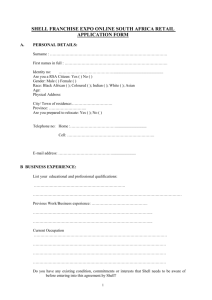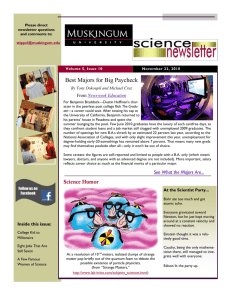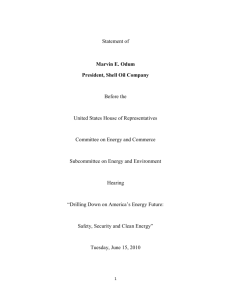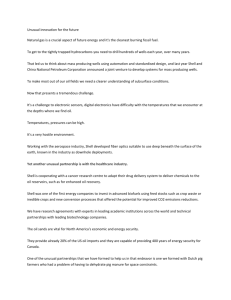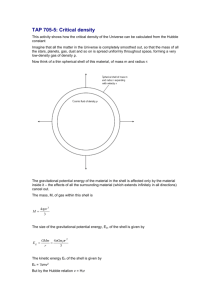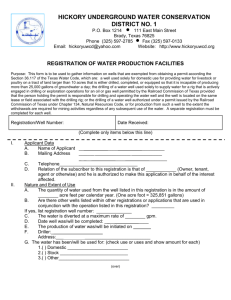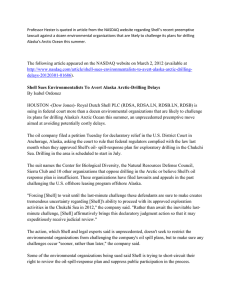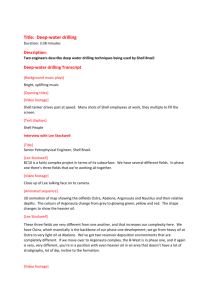Lance Cook: Shell Chief Scientist
advertisement
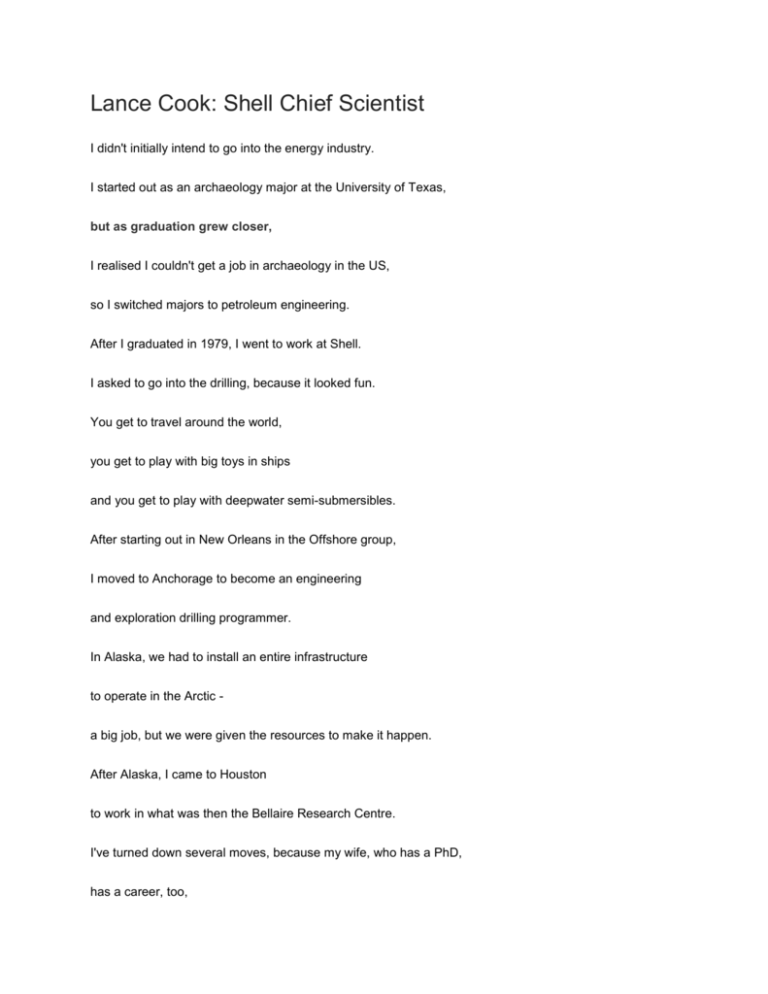
Lance Cook: Shell Chief Scientist I didn't initially intend to go into the energy industry. I started out as an archaeology major at the University of Texas, but as graduation grew closer, I realised I couldn't get a job in archaeology in the US, so I switched majors to petroleum engineering. After I graduated in 1979, I went to work at Shell. I asked to go into the drilling, because it looked fun. You get to travel around the world, you get to play with big toys in ships and you get to play with deepwater semi-submersibles. After starting out in New Orleans in the Offshore group, I moved to Anchorage to become an engineering and exploration drilling programmer. In Alaska, we had to install an entire infrastructure to operate in the Arctic a big job, but we were given the resources to make it happen. After Alaska, I came to Houston to work in what was then the Bellaire Research Centre. I've turned down several moves, because my wife, who has a PhD, has a career, too, so I've been here over 25 years. But despite that, Shell has still made it possible for me to have a global career. I've had a variety of jobs in Onshore Drilling and Production and I also spent several years as a CEO of a Shell joint venture. That venture developed a revolutionary expandable casing for deepwater applications. In 2007, I became vice president of Global Technology. Through that position, I got involved with a Shell joint venture with China National Petroleum company. As chief scientist, I'm continuing that role travelling between Houston and Beijing. That's exciting, because through this joint venture, we're creating a unique well manufacturing system. It will bring into the oil field the same assembly line concepts that revolutionised the auto industry. It's an unconventional approach to exploiting tight reservoirs, such as shale and coal-bed methane. These resources have begun to play a significantly bigger role in Shell's growth strategy. They will provide the low-cost energy that will power our economies for decades to come. But developing them requires hundreds, if not thousands, of wells. As you can imagine, drilling costs represent the biggest budgetary item in bringing tight gas fields into production. The current industry practice is to design drilling rigs and equipment to handle a wide range of well types. Instead of that, we're designing them for the well types to be drilled, as well as automating the rig controls. That way, we can mass-drill these wells, which will dramatically reduce the cost and environmental impact of field development. It will also be safer, because fewer people will be working on the rig floor and moving heavy equipment. Automation will also reduce the risk of human error. By the end of the decade, Shell intends to drill about 30,000 unconventional wells around the world, so this will have a tremendous impact. Technology is not just about being new or expensive. It's about getting work done. Shell recognises that with current low natural gas prices, we would need to use a different business model. We also need to make technologies affordable, in order to make tight gas reservoirs economical to develop. As chief scientist, my greatest focus will be on getting these technologies implemented, moving new ideas from the prototype stage into mature versions that we can replicate and deploy rapidly in the field. Right now - in Wells, new technology might easily take eight to ten years to develop. I want to cut that time in half. An example is what we're doing on the automation front. The brain of the well manufacturing system is our Supervisory Control and Data Acquisition drill software, which we call SCADAdrill. As it matures and proves itself, we need to have a robust approach for taking lessons learned from these experiences and integrating them into the next generation of SCADAdrill. We need to be able to do this quickly and across our global operations, but we don't have a good way of doing that now. Wouldn't it be great if when we come up with a new way of doing something, we could download it into all the rigs in our fleet? The same as when we log onto our Shell computer and get an automatic software update. Shell is the right company to make this happen. Innovation is part of our culture, and that culture is quite unique compared to most other international oil companies. Engineers here have a lot of freedom to come up with good ideas and experiment. But it's not just people in the research lab who are innovating. People in the field are coming up with new ideas, too. The role of chief scientist in the Technology group is to identify those ideas that could have widespread impact and help get them out into the world.
